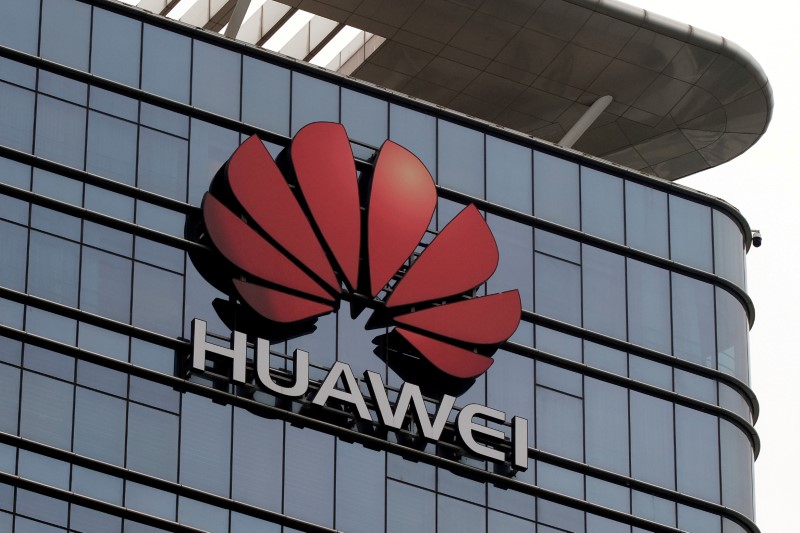By Herbert Lash NEW YORK (Reuters) – The dollar rose and global equity markets advanced on Tuesday, led by chipmakers and companies exposed to Asia, after the United States temporarily eased trade restrictions on China’s Huawei Technologies Co Ltd. Major European and Chinese stock indices rose after the Commerce Department late on Monday allowed Huawei to buy U.S. goods until Aug. 19 to maintain existing telecoms networks and provide software updates to its smartphones. The Trump administration is very sensitive to stock market declines and the Huawei stay of execution may provide short-lived relief, said Kristina Hooper, chief global market strategist at Invesco in New York. The temporary easing of the Huawei restrictions is an attempt to create positive news flow similar to last week’s dropping of tariffs on Canadian and Mexican steel, she said. “The 800-pound gorilla is U.S.-China trade relations and those are deteriorating,” Hooper said. “We might get positive news on relatively small trade developments like this extension for Huawei, but that doesn’t change the bigger picture in regard to the U.S. and China.” Shares of U.S. suppliers to Huawei, including Qualcomm Inc, Intel Corp, and Lumentum Holdings Inc rose more than 2%, as did the PHLX Semiconductor Index. In Europe, the tech sector closed 1.59% higher, with all but one of its 29 companies gaining. Germany’s trade-sensitive DAX rose 0.9%. European chipmakers AMS AG of Austria, Franco-Italian STMicroelectronics and Germany’s Infineon all advanced. The autos and suppliers sector in Europe pared some gains to rise just 0.24%, a sign investors are not too hopeful overall of trade tensions being defused. MSCI’s gauge of stock performance in 47 countries gained 0.56% and the pan-European FTSEurofirst 300 index of leading regional shares closed up 0.53%. Earlier in Asia, China’s Shanghai Composite index closed up 1.23% and the blue-chip CSI300 index ended 1.35% higher. On Wall Street, the Dow Jones Industrial Average rose 197.43 points, or 0.77%, to 25,877.33. The S&P 500 gained 24.13 points, or 0.85%, to 2,864.36 and the Nasdaq Composite added 83.35 points, or 1.08%, to 7,785.72. Signs that Asia is feeling the pinch from the U.S.-Sino trade spat pushed the dollar to a four-week high, with higher U.S. Treasury yields helping support the move. Data showed economic growth in Singapore was its lowest in nearly a decade in the first quarter, while in Thailand it was at its lowest in four years, raising worries that major Asian economies are getting hurt by global trade tensions. The dollar index rose 0.1%, with the euro down 0.08% to $1.1161. The Japanese yen weakened 0.43% versus the greenback at 110.56 per dollar. U.S. Treasury yields edged higher, lifted by equity market gains and higher risk appetite overall after the United States eased the trade restrictions imposed on Huawei last week. The move was a step in the right direction in terms of calming escalating trade tensions. “This is partly optimism in equities causing a reversal of the moves we saw last week,” said Subadra Rajappa, head of U.S. rates strategy at Societe Generale in New York, as well as a reduction in the markets’ rate cut forecasts. “There’s optimism about progress in the ongoing U.S.-China trade talks,” she added. Benchmark 10-year notes last fell 4/32 in price to yield 2.4281%. Brent crude, the international benchmark, and West Texas Intermediate, the U.S. oil standard, retreated on concerns that a prolonged U.S.-China trade war could lead to a global economic slowdown. Oil futures were flat as the prospect of U.S.-Iran tensions disrupting supply was offset by concerns that a drawn-out trade war between Washington and Beijing would weigh on crude demand. Brent crude futures settled up 21 cents at $72.18 per barrel. U.S. crude slid 11 cents to settle at $62.99 per barrel. Gold prices dropped to a more than two-week low as investors opted for the dollar while an improved appetite for riskier assets dented the appeal of bullion. U.S. gold futures settled down 0.3% at 1,273.2 an ounce. (Reporting by Herbert Lash, additional reporting by Gertrude Chavez-Dreyfuss in New York; Editing by Paul Simao, Richard Chang, and Dan Grebler)]]>
previous post
Reuters
Reuters is an international news agency headquartered in Canary Wharf, London, England and is a division of Thomson Reuters.


